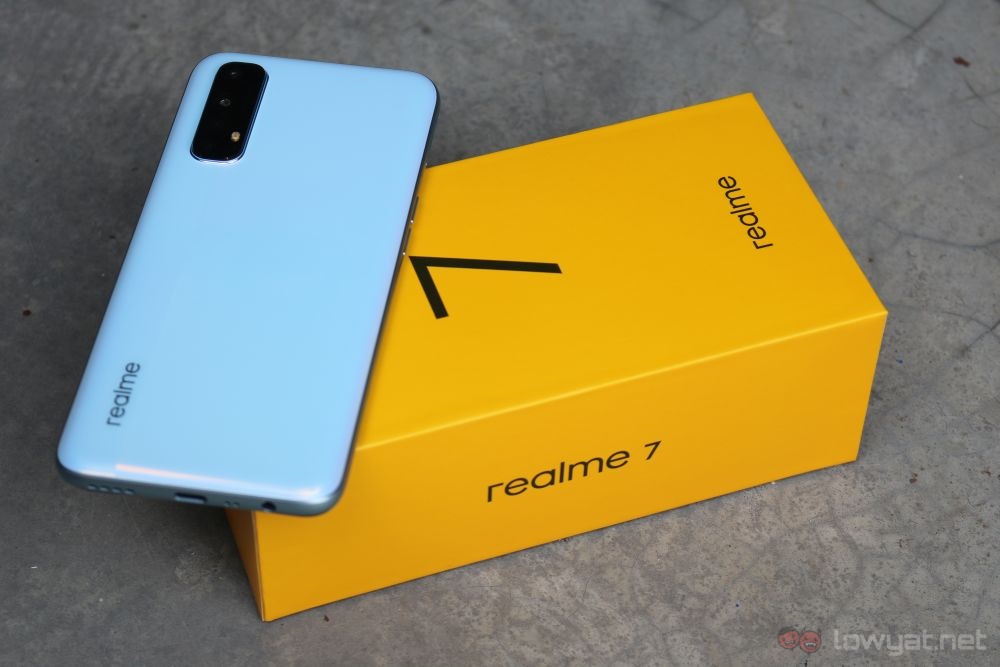We’ve done the hands on for the realme 7 Pro earlier, so now it’s time to do the same for the base model. Which is where things get quite weird for the two devices. Because despite the Pro designation on the previous one, this realme 7 seems to have some of the better features.
Starting with the display, we’re looking at a similar Full HD+ display. It also has a punch-hole camera cutout at the top left corner, and the glass over the screen is similarly flat. Nothing wrong here, except the screen on the realme 7 is slightly larger, measuring in at 6.5 inches. It also has a higher refresh rate at 90Hz, but a slightly lower sampling rate at 120Hz.
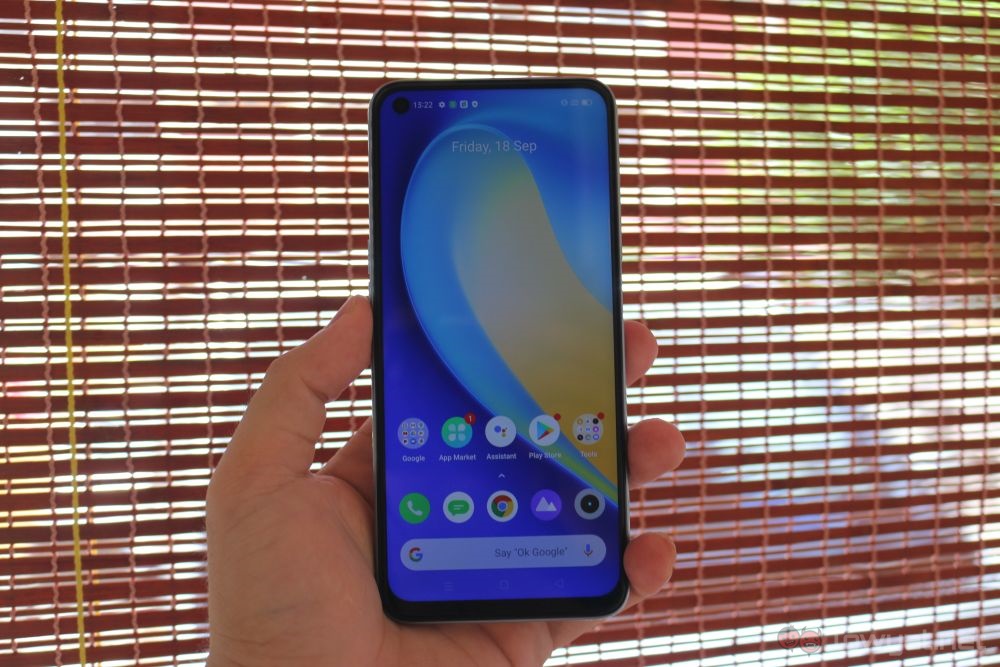
And this is a noticeable difference when you have both devices side-by-side. The base realme 7 feels smoother when you’re scrolling through the app drawer, or on your favourite social media app. For what it’s worth, this phone runs a MediaTek Helio G95 chipset, but has the same 8GB of RAM and 128GB of storage space as the Pro model.
And while we’re talking about the internals, it’s also worth noting that the realme 7 comes with a 5000mAh battery. This makes it slightly larger than the battery in the Pro model, but doesn’t charge as quickly, with the fast charging support going up to 30W.
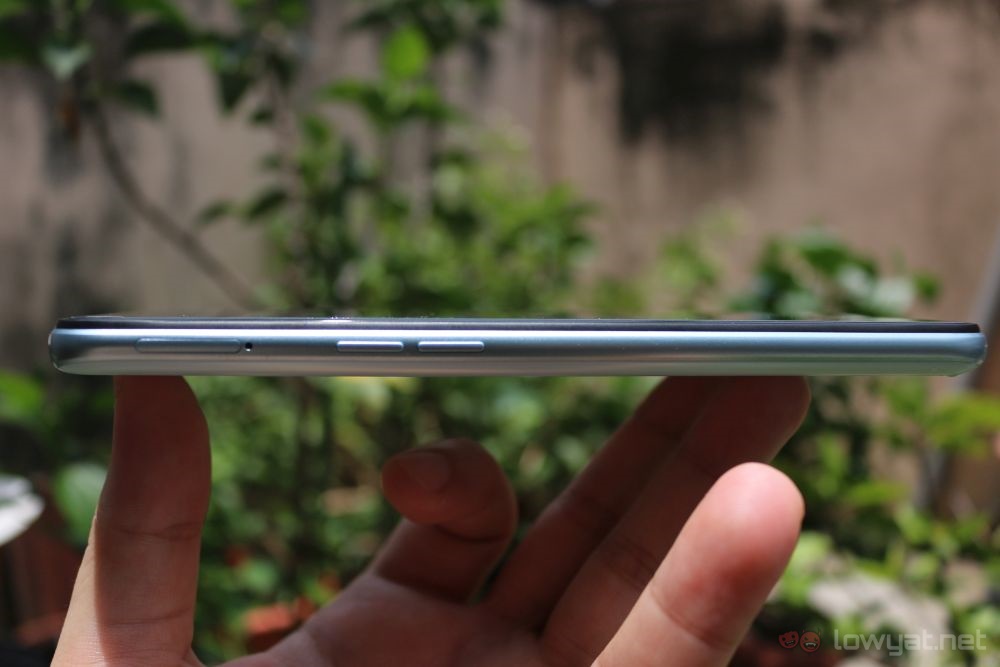
On the sides, one clear difference that separates the realme 7 from it s Pro variant is that it adopts a metallic silver colour here, rather than the colour of its back. Beyond that, you have the volume rocker on the left side, and at the bottom there’s the USB-C charging port, the speaker grille, and the 3.5mm audio jack.
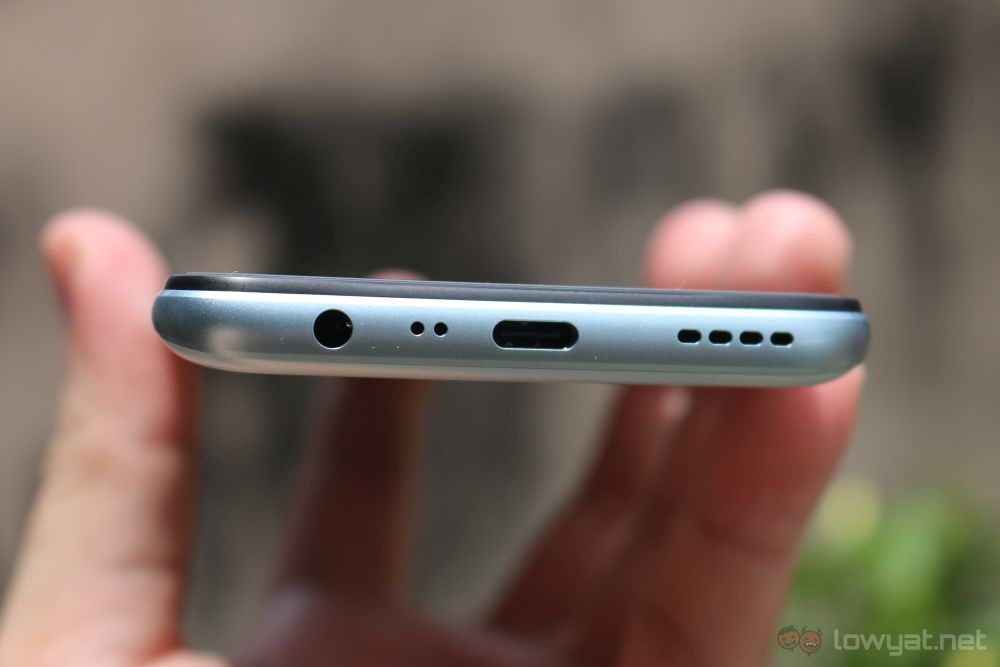
This is a subjective element, but in my eyes, the realme 7 also has the superior fingerprint sensor. And it’s not about the unlocking speed, but where it’s located. And in this case, the phone combines the fingerprint sensor with the power button. There’s also a slight indent on the right side to make it more easily located without looking at the phone.
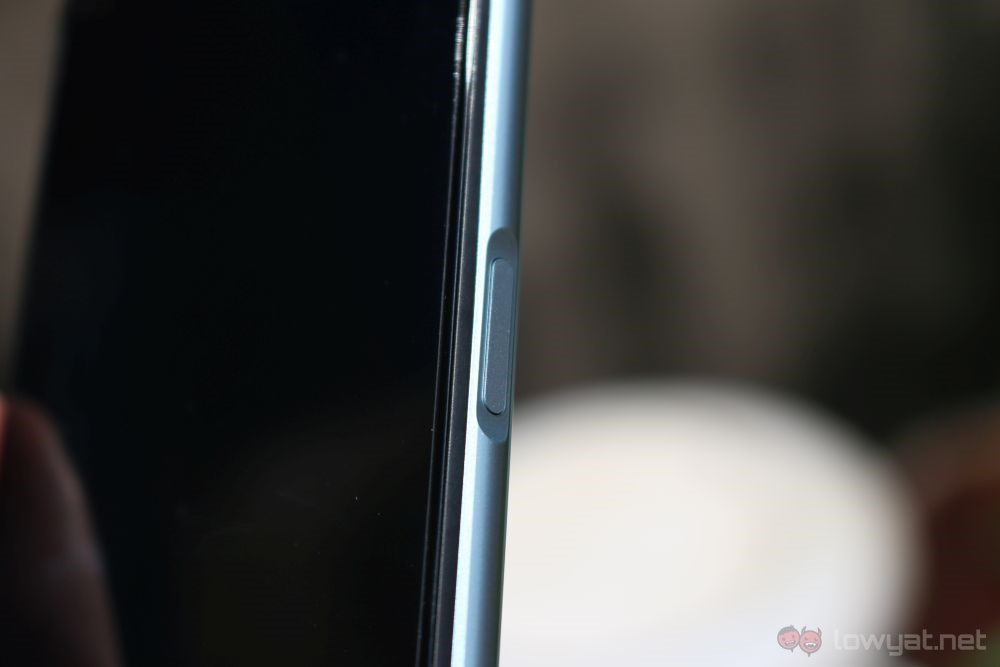
On the back, you see the phone sporting the Mist White colour that it’s supposed to have. Like the Pro model, the back is cruved around the edges for a more comfortable grip on the phone. The quad-camera setup is also arranged differently, making the island longer but thinner. This is one of the best identifiers when you need to differenciate between the realme 7 and the Pro variant.
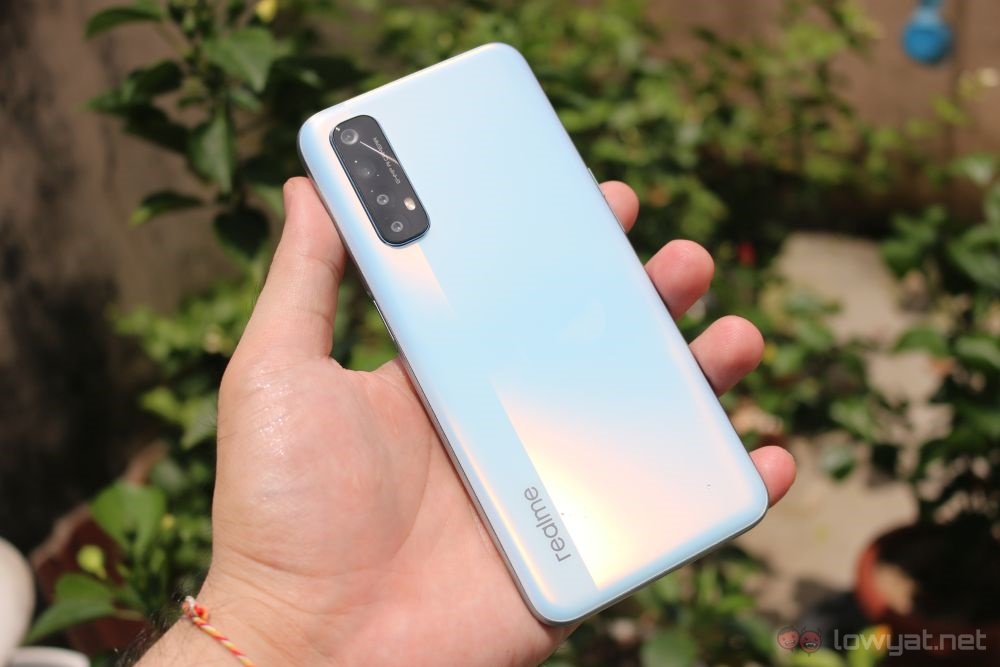
The rear cameras on the realme 7 are also identical to the Pro model. This means we’re still looking at a 64MP main shooter and an 8MP wide-angle camera. They are accompanied by a monochrome portrait and a macro lens, both of which are of unspecified pixel count. But in front, the base model replaces the 32MP shooter on the Pro variant for a 16MP camera.
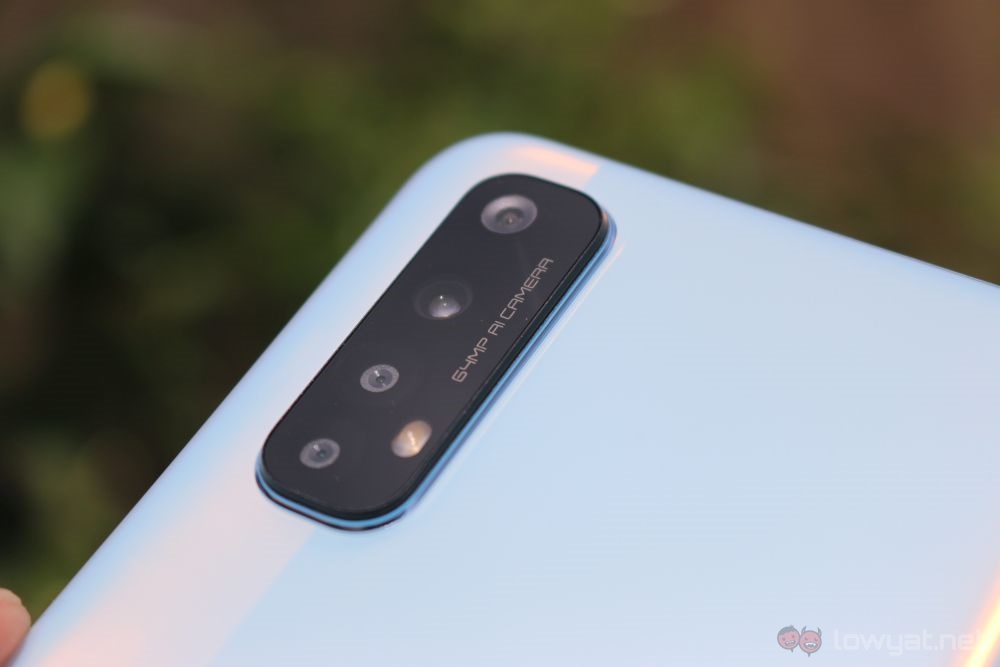
All this makes picking one of the two to buy a more complicated process than it needs to be. The realme 7 has a few advantages over its Pro model, and it’s quite a fair bit more than the usual difference between a standard and a Pro variant. And this is with the base model still holding the price advantage. Overall, the realme 7 looks like the better deal, unless its real-world performance trails significantly behind the Pro model.
Follow us on Instagram, Facebook, Twitter or Telegram for more updates and breaking news.


